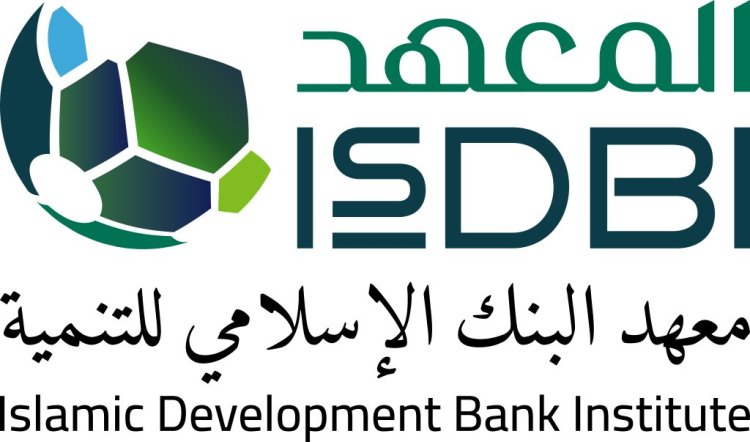IsDBI and LSEG Launch Groundbreaking Report on Islamic Finance and Development Traps
The publication represents the first volume in the Development Traps Report Series, a flagship research initiative jointly developed by IsDBI and LSEG.

- Country:
- Bahrain
The Islamic Development Bank Institute (IsDBI), in collaboration with the London Stock Exchange Group (LSEG), has unveiled a major joint publication titled "Development Traps and the Role of Islamic Finance: An Introduction to Development Challenges Facing IsDB Member Countries." The report was launched on 2 November 2025 during the 20th AAOIFI-IsDB Annual Islamic Banking and Finance Conference in Manama, Bahrain, marking a milestone in global dialogue on leveraging Islamic finance for sustainable development.
A New Framework to Understand Development Challenges
The publication represents the first volume in the Development Traps Report Series, a flagship research initiative jointly developed by IsDBI and LSEG. It introduces a data-driven analytical framework designed to help policymakers identify and overcome structural barriers to economic growth across the 57 IsDB member countries.
The report outlines five key "development traps" that often hinder sustained progress:
-
Middle-Income Trap – when economies stagnate after initial growth, unable to transition into high-income status.
-
Natural Resources Trap – overreliance on extractive industries that stifle diversification.
-
SMEs & MSMEs Trap – structural and financial barriers faced by small and medium enterprises.
-
Debt Trap – vulnerabilities linked to unsustainable borrowing and fiscal imbalances.
-
Technology Trap – the inability to keep pace with global digital transformation.
By focusing on these interconnected traps, the report provides a strategic roadmap for countries seeking long-term, inclusive, and resilient economic development.
Data-Driven Insights Anchored in Islamic Finance Principles
Drawing on data from over 20 international institutions, including the World Bank, IMF, UNDP, WIPO, OPEC, and ILO, the report integrates quantitative indicators with Islamic economic and financial principles. It demonstrates how Sharīʿah-compliant instruments — such as sukūk (Islamic bonds), waqf (endowments), muḍārabah (profit-sharing partnerships), and zakāt (obligatory almsgiving) — can serve as powerful tools to address structural inequalities and stimulate sustainable growth.
According to the authors, these mechanisms promote ethical investment, risk-sharing, and social inclusion, aligning financial innovation with the UN Sustainable Development Goals (SDGs). The report highlights real-world case studies showing how Islamic finance can strengthen financial inclusion, entrepreneurship, and green development in emerging economies.
Voices from Global Leaders
The launch event featured contributions from several distinguished global economists and policymakers, including Dr. Bambang Brodjonegoro, Dean of the Asian Development Bank Institute, and Dr. Mahmoud Mohieldin, UN Special Envoy on Financing the 2030 Agenda for Sustainable Development.
Dr. Sami Al-Suwailem, Acting Director General of the IsDB Institute, emphasized the importance of the new research initiative, stating:
"This report series represents an important milestone in our efforts to provide actionable intelligence for policymakers. It offers early warning signals to help our member countries avoid structural traps and leverage the full potential of Islamic finance for sustainable, inclusive growth."
He further noted that the partnership with LSEG "bridges the analytical rigor of global capital markets with the ethical and risk-sharing foundations of Islamic finance," paving the way for stronger collaboration between Islamic finance institutions and global investors.
Mustafa Adil, Head of Islamic Finance at the London Stock Exchange Group, echoed this sentiment, saying:
"Our partnership with IsDBI demonstrates how financial innovation and reliable data can be mobilized to address the most pressing development challenges. Islamic finance is not only ethical — it is strategically positioned to deliver impact in emerging economies."
Future Volumes and Policy Directions
The newly released report serves as the foundation for five upcoming thematic volumes, each dedicated to one of the identified development traps. The next volume, focusing on the Middle-Income Trap, will explore how Islamic finance can drive economic diversification, productivity gains, and human-capital development through innovative policy and investment frameworks.
Future reports will build on this work by proposing practical policy recommendations, identifying best practices from across the Islamic world, and fostering collaboration between governments, investors, and multilateral institutions.
Advancing the Global Development Agenda
Experts at the conference noted that the Development Traps Report Series arrives at a critical time when many developing nations are grappling with sluggish growth, high debt burdens, and uneven access to technology. By emphasizing Islamic finance's moral, inclusive, and equitable approach, IsDBI and LSEG aim to redefine how development policy is conceived and implemented across the Global South.
With its fusion of rigorous analytics and ethical financial design, the new report marks a turning point in efforts to harness faith-based finance for global progress — ensuring that prosperity is both sustainable and shared among all communities.









